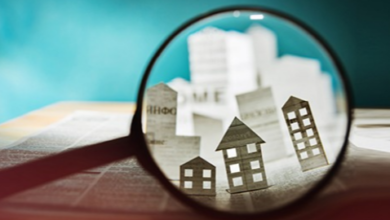How to Recession Proof your Finances in 2025

A recession is a scary thought for many Americans, and it is defined as a period that involves negative economic growth. In the United States, the National Bureau of Economic Research (NBER) decides if we’re in a recession by observing indications of persistent economic downturn in various sectors of the economy. This calculation is based on factors like real estate data, employment levels, wholesale retailers, gross domestic products, and the value of goods and services compared to current wages.
If you are concerned about a recession hitting the globe in 2025, it’s important to learn how to recession-proof your finances and prepare for the worst, even if you expect the best.
What are the Signs of a Recession in 2025?
Signs of a coming recession can be more subtle than you think, much like changes in the stock market or spending habits in your hometown. Recession effects can cause negative chain reactions that start small and then become very apparent as they snowball. Before a recession hits, look at the indicators below to determine where the economy falls on the scale in 2025:
- Unemployment Rates: The Sahm Recession Indicator is employment data that is published monthly by the Bureau of Labor Statistics. When the percentage increases for three months in a period of 12 months, it is marked as a recession by the applicable financial experts.
- Low Consumer Spending: When a consumer does not contribute to the economy as normal, markets and companies lose money, which will often cause inflation and limited stock. Think about how it would impact local and global businesses if you decided to stop shopping at a store or restaurant chain. Spending money is important to keep the flow of businesses running, along with their stocks!
- Decline in Industrial Production Efforts: During a downturn, companies cut down their production efforts in order to minimize the risk of losing money. When this happens, it’s a ripple effect, causing fewer resources! An example of this is that during the pandemic, many car manufacturers struggled with increased cost of production in comparison to actual vehicle sales. Supply decreased because many factories simply weren’t producing many new vehicle makes and models.
- Decline in the Housing Market: Decreased demand for housing, price declines on new listings, increased foreclosures, stricter lending conditions, and higher mortgage rates can all be potential signs of a recession.
Although these are strong indicators that a recession may be on its way, it is important to note that only specialized agencies can confirm if we are truly in a recession. It takes time, statistics, analysis reports, and a whole lot of education on the subject. It is important to be informed to be ahead of the curve in order to protect yourself financially from the worst outcomes that are tied to an economic downturn.
Importance of Financial Resilience
Staying informed about economic trends and adapting your spending strategies as needed can help you navigate the unexpected, including a recession. When life is unpredictable, the best thing we can do is be resilient. Financial resilience is about building a strong, long-term foundation that makes you feel safe, secure, and confident with your finances.
It means to take charge, have control, and also pursue a more fulfilling life without worrying about money all the time. A great way to start is to consult with a financial advisor! Through their expert guidance, you can work to develop a personalized strategy tailored to your specific financial situation and goals.
How To Financially Prepare For a Recession
While we cannot be certain what our future holds as a country, historically, the United States has recovered from all recessions in history. How? The importance of staying calm during tough economic periods is the only way to survive them. These are a couple of things you can do to start preparing for a recession:
- Assess Your Current Financial Health: Financial health check-ups are a crucial step in being prepared for recession. You should focus on all areas of your finances, including your budget, spending habits, debt, savings goals, retirement accounts, credit reports, insurance coverage, and estate planning documents. The goal of assessing your finances is to see where you stand if you were hit with unexpected expenses or a significant life change, such as losing your job or a recession.
- Monitor Your Credit Report: How often are you checking your credit? Many financial experts recommend reviewing your credit report at least once a year. You can check your score for free on websites like AnnualCreditReport.com, and you are legally entitled to this once per year. By consistently reviewing your credit report, you can dispute any potential discrepancies and get a better idea of how to improve your credit history. Having a strong credit score can be advantageous because it can help individuals access better interest rates on loans, potentially reducing the burden of having to borrow money during a recession. Good credit scores can go a long way when it comes to getting credit cards, automotive and personal loans, and other means of financial assistance.
- Cut Non-Essential Expenses: Create a realistic budget tailored to your needs and stick to it as much as possible. When reviewing your budget periodically, you should try to find areas where you can cut back on expenses like groceries, restaurants, and entertainment in order to free up funds for paying off your debt. While there are things we cannot budget for, keep a list of your “needs” and “wants”. You may also want to utilize your bank’s financial tools, which are mostly available to those who have an online banking account. Other websites, like government-funded sites, can help you track your spending and get access tofinancial tools, which can be beneficial in a time of recession.
- Build an Emergency Fund: An emergency fund acts as a security net during tough times. By having at least 3-6 months’ worth of expenses, people can help navigate unexpected debt, expenses, potential job loss, and ultimately have financial flexibility in a time of need. An emergency fund may also increase your ability to recover from the economic downturn, so there is no better time than now to be prepared for the worst!
- Diversify Your Income: Explore options to increase your income, such as a side hustle or selling unused items, to accelerate your savings goals or pay off debt. Invest in new skills, get certified in something that has job stability, or even ask your employer for a raise. Other options for diversifying your income include finding potential investment opportunities in high-quality stocks or real estate at discounted prices just before the recession hits (if it does).
- Strengthen Your Professional Network and Resume: Being a part of a professional network of individuals working towards a common goal can be especially beneficial in a time of recession. Actively focus on building and learning from people in the industry, educate yourself on financial topics and trends, attend skills training, and seek advice from financial advisors who can point you in the direction that you want to go. Enhance your resume by incorporating networking skills and listing relevant experiences.
- Refinance or Pay Down Debt: Before paying off debt, make sure you consider things like job security, reduced hours, unexpected expenses, and prioritizing high-interest, variable-rate debt first, as these can be more volatile during economic downturns. With that being said, paying off debt can be a smart financial move for some. Depending on your specific situation, eliminating debt that may normally take most of your paycheck can be useful in times of recession. For example, a high-interest credit card requires a minimum payment every month, which can potentially take a big chunk of your monthly income. Another way to save money could be refinancing your current mortgage and securing a lower interest rate, which lowers your monthly payment.
- Avoid Big Purchases and Investments Without Research: Recessions are periods of economic uncertainty, which means that it is risky to invest in assets that may lose value, such as real estate or stocks. A couple of examples of things to avoid or delay purchasing may be a new house, car, major home renovations, luxury goods, and taking on new debt. This Financial Do’s and Don’t List can be useful when deciding whether you should buy something or make an investment. Remember, unnecessary loans or credit card debt can become burdensome if your income is affected. Think smart, long-term, and do research or talk to a financial advisor before making a big decision.
Get Your Finances in Order
Preparing for a recession at all times is one of the most empowering things you can do to stay ahead of the curve. Not only does it make you financially resilient, but it also puts you in a position of financial wellness. While the world we live in is unpredictable, your safety nets, plans, and goals don’t have to be. Making informed decisions, building, learning, and having a plan in case of a recession will no doubt put you ahead of a possible impact. Starting is the hard part, but once you start, you won’t want to stop. You can take the first step by evaluating your financial situation, creating a budget, cutting non-essential expenses, and building an emergency fund to help you bounce back, if needed. Strengthen your credit, explore new income opportunities, and keep learning about smart money practices.



